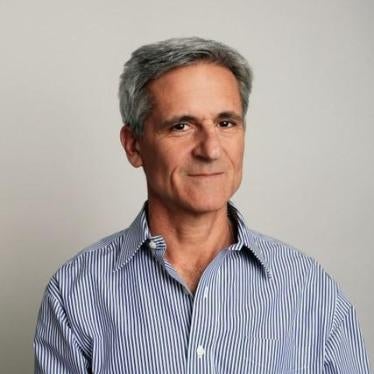The Moroccan police arrested Taki Machdoufi in El-Ayoun, Western Sahara, in 2010, and interrogated him over five days about fatal clashes that had just taken place between Sahrawi protesters and the police. Each time the Sahrawi activist denied any role in the violence, he says, two agents struck his neck and head. "Say whatever you want," they allegedly told him. "We're going to write your statement as we want."
When finished with their questioning, the police presented Machdoufi with a statement to sign. He asked to read it. Instead, one of the officers walked behind him and grabbed his hand, which was cuffed behind his back, pressed his finger on an inkpad and then onto the statement, Machdoufi recalls.
Like his co-defendants, Machdoufi saw no lawyer while in police custody. Before the court, he and the others repudiated their statements; most said the police had tortured them. But the court did not order any medical exams to check their claims of abuse, and convicted all 25 of them for attacking the police. The only evidence was their contested confessions. Machdoufi is now free after two years in prison; his co-defendants are serving terms of up to 30 years.
For nearly two decades, Morocco has followed a path of gradual reform with increasing space for criticism and protest. Some of the worst abuses by the security services under the late King Hassan II, such as forced disappearances, have ceased. A truth commission appointed by his son, King Mohammed VI, enabled the country to acknowledge past violations and compensate victims, although none of those responsible for the crimes were brought to justice.
However, the judiciary has been a laggard in the reform process. A partially reformed state, as it eases up on naked force as a tool of repression, may rely more on a subservient judiciary to punish opponents who go too far.
Conscious of public frustration with Morocco's court system, Mohammed VI made its overhaul the theme of an address to the nation in 2009. The 2011 Constitution [PDF] features many articles that could enhance judicial independence. A commission [French] appointed by the king is expected shortly to unveil a blueprint for judicial reform in light of the new constitution.
The courts can be reformed in countless ways but fair trials are possible only when the judiciary asserts its oversight over the police and tempers its readiness to accept contested statements into evidence.
Human Rights Watch monitored several politically sensitive trials involving Sahrawi activists, protesters, and people accused of plotting terrorism. We interviewed dozens of Moroccan lawyers about defending clients in politically sensitive cases. The conclusion was clear: once the police obtained a signed statement — no matter how they got it, how improbable the wording, or how slim the other evidence in the file — the defendant was on a fast track to "guilty."
"It is as if the trial has already taken place at the police station," one lawyer told us. "Almost nothing you can do at trial can undo your statement."
Moroccan law offers defendants some strong protections by criminalizing torture and obliging judges to exclude any evidence obtained through "violence or coercion." But other laws need reform. The law granting defendants in initial custody the right to contact a lawyer should be improved to ensure prompter, face-to-face access. Few of the defendants in the cases we examined saw a lawyer until after the police had finished their interrogation and presented them with their statement for signature.
Another problem is that the Code of Penal Procedure [PDF] instructs the court to consider statements prepared by the police trustworthy unless there is evidence to the contrary. Legislators should amend this article, which applies only to offenses carrying a sentence of five years or less of prison, to require the court to treat a police statement like any other piece of evidence, rather than placing the burden on the defendant to disprove it.
Reforming the judiciary depends not only on revising laws but also on training and instructing judges to respond diligently to claims of police abuse. Defendants may be telling the truth when they say they were tortured, threatened, or tricked into signing false statements.
A judge should question a defendant who makes these claims about his experience in police detention, and, where warranted, order an impartial medical examination and summon the police officer who took the statement. The need to investigate is even more acute when the case hangs on a contested statement alone, with no prosecution witnesses or forensic evidence.
It is rarely easy for a judge to determine what really happened when the defendant was alone with the police. But international norms [PDF] provide guidance on how to question alleged torture victims to assess their credibility, even in the absence of visible wounds. Judges need to fulfill their legal duty to exclude evidence extracted through "violence or coercion."
By taking this duty seriously, judges will strike a blow not only for fair trials but also against torture and ill-treatment, by signaling to the police that they must collect evidence through licit means — or risk seeing the court toss it out.
Eric Goldstein is deputy director of the Middle East and North Africa Division at Human Rights Watch and has long followed developments in Morocco.







